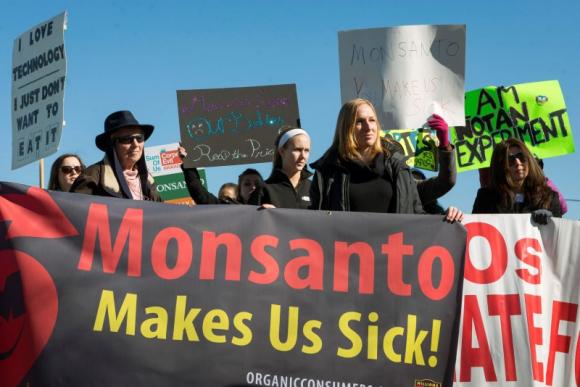
(Reuters) – A World Health Organization group’s controversial finding that the world’s most popular herbicide “probably is carcinogenic to humans” was based on a thorough scientific review and is a key marker in ongoing evaluations of the product, the scientist who led the study said Thursday.
“There were several studies. There was sufficient evidence in animals, limited evidence in humans and strong supporting evidence showing DNA mutations … and damaged chromosomes,” Aaron Blair, a scientist emeritus at the National Cancer Institute, said in an interview.
Blair chaired the 17-member working group of the WHO’s International Agency for Research on Cancer (IARC), which rocked the agricultural industry on March 20 by classifying glyphosate as “probably” cancer-causing.
Monsanto Co , which has built a $15 billion company on sales of glyphosate-based Roundup herbicide and crops genetically engineered to tolerate being sprayed with Roundup, has demanded a retraction and explanation from WHO.
Monsanto officials have accused the IARC group of relying on “junk science” and basing conclusion on politics rather than sound science. Company officials say glyphosate has been proven safe for decades.
“We are in the process of determining the best path forward,” Monsanto spokesman William Brennan said. “Monsanto would like to understand how this conclusion could be reached and how the IARC process differs from other scientific reviews.”
But Blair said Thursday the classification is appropriate based on current science. There have been hundreds of studies on glyphosate, he said, with concerns about the chemical growing over time. The IARC group gave particular consideration to two major studies out of Sweden, one out of Canada and at least three in the United States, he said.
He stressed that the group did not classify glyphosate as definitely causing cancer.
“We looked at, ‘Is there evidence that glyphosate causes cancer?’ and the answer is ‘probably.’ That is different than yes,” said Blair.
He said the scientific understanding of glyphosate impacts is still evolving.
“It is different than smoking and lung cancer. We don’t say smoking probably causes cancer. We say it does cause cancer. At one point we weren’t sure, but now we are.”
Blair said the criticism of his group’s conclusion was not surprising given the widespread use of glyphosate.
“These sorts of things are going to go on as evidence is evaluated and scrutinized. That is what science is in democracy.”
(Reporting by Carey Gillam in Kansas City, Missouri; Editing by Richard Chang)
